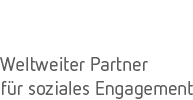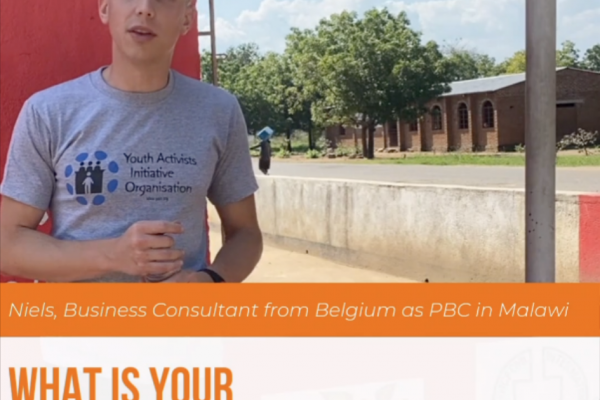The 4th Global Pro Bono Summit in Singapore seeks to strengthen the movement in Asia and explore opportunities for cross-sector collaboration. We are supported in this endeavor by our local partner, Conjunct Consulting, which has a lot of experience in collaborating with governments and administrations. Samantha Lee is president of the organization.
This year’s Summit is the first one in Asia. It will take place in Singapore, one of the world’s most prosperous countries. What are the unique challenges of the pro bono movement in Greater Singapore?
In Singapore, there’s an overwhelming number of people interested in doing pro bono work. On LinkedIn alone, 39,235 people based in Singapore have put their hands up for skills-based volunteering. Given that there are only about 2,000 charities in Singapore, that’s approximately 20 people per charity! While this is certainly a happy problem to have, according to a survey we conducted late last year, non-profits face the most challenges in recruiting volunteers with relevant skills and identifying needs/defining role of volunteers. This indicates to us that while there may be an overwhelming supply of people interested in pro bono, we still have some ways to go in matching them to the right opportunities and helping the social sector learn how to best use them.
Although it is a small country with a population of five million, Singapore has a rapidly growing pro bono market. What are the reasons for this development?
The development has been driven on both ends of the ecosystem. We have seen an increasing number of people coming to us to volunteer their skills, which has allowed us to grow quite rapidly in an organic way. More recently, this development is also being driven on a national level, where the government is actively pushing the pro bono movement. In my opinion, a lot more work has to be done in convincing companies here of the benefits of investing in a well-structured pro bono program. We certainly have some ways to go in making pro bono a norm for companies! On the non-profit side as well, Conjunct currently plays an active role in scoping the projects, training and matching the volunteers, and managing the project for the non-profit, to a point where we run more like a social sector consulting firm. We have found that this is important in ensuring great outcomes for all, but if I could dream, I’d certainly love to see more non-profits build their capacity to define their needs, recruit volunteers, and manage them more effectively.
What are the needs of non-profits in your region? What are the skills professionals are offering? What are the most challenging projects for you to match?
The top 3 needs of the non-profits in Singapore are marketing and communications, information technology, and fundraising. The top 3 skills professionals are offering are strategy management, leadership and human resources, and marketing and communications. The most challenging projects for us to match are always the more technical types, where we either have a group of volunteers with a unique skill-set or we have a technical need, e.g., redesigning a website, that requires skills that not as many volunteers possess.
What kind of challenges do you face during the matching process? Is it more challenging to recruit the skilled professionals or the NGOs? Why do you think that is?
At Conjunct, we really emphasize finding the right match on both sides. We interview all volunteers who apply to be members to understand tangible factors like their skills and time commitment as well as the more intangible factors like what they are hoping to get out of the experience and what their motivations are. Similarly for the non-profits we work with, we have a structured needs analysis process which allows us to not only identify the specific need but also understand how the project fits into their long-term goals and/or addresses underlying root causes of issues they may be facing. Fundamentally, we want to ensure that through our matching, we are able to create the most positive impact for both the non-profit and the volunteer, and given the various permutations of different factors, sometimes matching can get quite challenging. Having a large network of non-profits and volunteers has been really important in enabling us to do the matching well.
Conjunct Consulting has been recognized by the Singapore government and won several awards. Compared to states like Germany or the U.S., your government is strongly supporting the pro bono movement. Why is that?
Singapore recently celebrated its 50th birthday, and as a growing nation, there has been an increasing push to enable the people to feel a sense of ownership and responsibility towards the community. Skills-based volunteering is a significant part of that story; after all, if people are going to spend approximately 90,000 hours working in a lifetime honing their skills, what better way to contribute to the community than to give some of those skills to charity?
What are your expectations for the Summit – especially as it takes place on your home turf? What would make this Summit tremendously successful for your organization? For your country?
For us, the Summit has been a great way to start conversations with new people and organizations regarding the benefits of pro bono. It’s a fantastic reason to bring together all the different players in the local pro bono scene and to have a discussion around what we are already doing well, and what we could be doing better. If we can collectively understand that promoting pro bono is a long-term investment with no shortcuts or quick fixes, and that the only real solution is to continuously grow and mutually support each other through this journey, I think that will be a fantastic win for both my country and my organization.
Of course, if I can get more Global Fellows to fall in love with chilli crab, I would consider that a success, too!
To what extent can a global network support a national organization like Conjunct Consulting?
Conjunct has already gained tremendously from the global network, especially in helping us figure out what new models we could try to adapt to the Singapore context. It’s been a wonderful learning journey for us, and it’s also always nice to compare notes with other organizations who empathize with our challenges and share our passion for pro bono.
What connections have you made so far as a member of our Global Pro Bono Network – and what where the outcomes in terms of social impact?
Antoine (Pro Bono Lab) and Joel (Taproot Foundation) have certainly been great advisors, especially in our early days. The Asia Pro Bono Fellows have also been a tremendous bunch to work with, and collaborating with Yan Peng and Susie (Huizeren), Ikuma (Service Grant Japan), Shalabh (iVolunteer), and Ada (Thai Young Philanthropist Network) to conduct and publish a regional survey on pro bono trends in Asia has been a huge achievement for us all.
You will likely meet some organizations that are just beginning programs in their home countries. What is your best advice for them?
Learning from those who’ve come before us has helped us grow faster than we may have otherwise. Beyond that, my advice is very simple – dream big, work hard and don’t give up.
Interview: Maja Heinrich, BMW Foundation
Press Release: 4th Global Pro Bono Summit and additional information on Storify









1 Comment.
whoah this blog is wonderful i really like reading your articles. Keep up the great work! You understand, lots of individuals are looking round for this inmrifatoon, you could help them greatly.